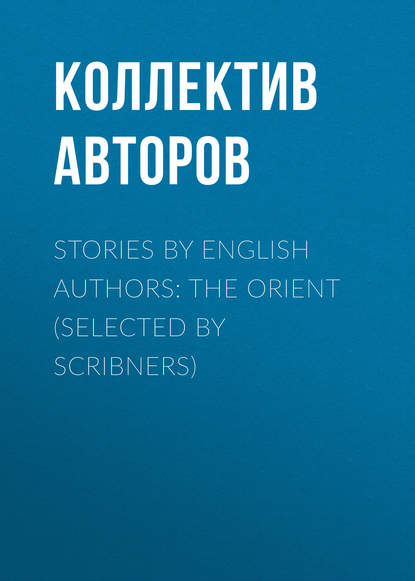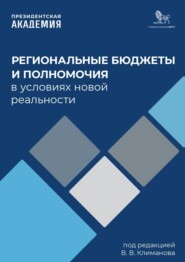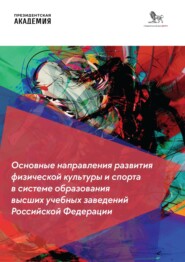По всем вопросам обращайтесь на: info@litportal.ru
(©) 2003-2024.
✖
Stories by English Authors: The Orient (Selected by Scribners)
Настройки чтения
Размер шрифта
Высота строк
Поля
“I don’t know quite,” said Tu, “where we are to put your two men. But, by-the-bye,” he added, as the thought struck him, “did you really travel all the way in the company of these two men only?”
“O Tu,” said Jasmine, laughing, “I have something else to confess to you.”
“What! another lover?” said Tu, affecting horror and surprise.
“No; not another lover, but another woman. The short, stout one is a woman, and came as my maid. She is the wife of ‘The Dragon.’”
“Well, now have you told me all? For I am getting so confused about the people you have transformed from women to men, that I shall have doubts about my own sex next.”
“Yes, Tu, dear; now you know all,” said Jasmine, laughing. But not all the good news which was in store for him, for scarcely had Jasmine done speaking when a letter arrived from his friend in the Board of War, who wrote to say that he had succeeded in getting the military intendant of Mienchu transferred to a post in the province of Kwangsi, and that the departure of this noxious official would mean the release of the colonel, as he alone was the colonel’s accuser. This news added one more chord of joy which had been making harmony in Jasmine’s heart for some hours, and readily she agreed with Tu that they should set off homeward on the following morning.
With no such adventure as that which had attended Jasmine’s journey to the capital, they reached Mienchu, and, to their delight, were received by the colonel in his own yamun. After congratulating him on his release, which Jasmine took care he should understand was due entirely to Tu’s exertions, she gave him a full account of her various experiences on the road and at the capital.
“It is like a story out of a book of marvels,” said her father, “and even now you have not exhausted all the necessary explanations. For, since my release, your friend Wei has been here to ask for my daughter in marriage. From some questions I put to him, he is evidently unaware that you are my only daughter, and I therefore put him off and told him to wait until you returned. He is in a very impatient state, and, no doubt, will be over shortly.”
Nor was the colonel wrong, for almost immediately Wei was announced, who, after expressing the genuine pleasure he felt at seeing Jasmine again, began at once on the subject which filled his mind.
“I am so glad,” he said, “to have this opportunity of asking you to explain matters. At present I am completely nonplussed. On my return from Peking I inquired of one of your father’s servants about his daughter. ‘He has not got one,’ quoth the man. I went to another, and he said, ‘You mean the “young noble,” I suppose.’ ‘No, I don’t,’ I said; ‘I mean his sister.’ ‘Well, that is the only daughter I know of,’ said he. Then I went to your father, and all I could get out of him was, ‘Wait until the “young noble” comes home.’ Please tell me what all this means.”
“Your great desire is to marry a beautiful and accomplished girl, is it not?” said Jasmine.
“That certainly is my wish,” said Wei.
“Well then,” said Jasmine, “I can assure you that your betrothal present is in the hand of such a one, and a girl whom to look at is to love.”
“That may be,” said Wei, “But my wish is to marry your sister.”
“Will you go and talk to Tu about it?” said Jasmine, who felt that the subject was becoming too difficult for her, and whose confidence in Tu’s wisdom was unbounded, “and he will explain it all to you.”
Even Tu, however, found it somewhat difficult to explain Jasmine’s sphinx-like mysteries, and on certain points Wei showed a disposition to be anything but satisfied. Jasmine’s engagement to Tu implied his rejection, and he was disposed to be splenetic and disagreeable about it. His pride was touched, and in his irritation he was inclined to impute treachery to his friend and deceit to Jasmine. To the first charge Tu had a ready answer, but the second was all the more annoying because there was some truth in it. However, Tu was not in the humour to quarrel, and being determined to seek peace and ensue it, he overlooked Wei’s innuendos and made out the best case he could for his bride. On Miss King’s beauty, virtues, and ability he enlarged with a wealth of diction and power of imagination which astonished himself, and Jasmine also, to whom he afterward repeated the conversation. “Why, Tu, dear,” said that artless maiden, “how can you know all this about Miss King? You have never seen her, and I am sure I never told you half of all this.”
“Don’t ask questions,” said the enraptured Tu. “Let it be enough for you to know that Wei is as eager for the possession of Miss King as he was for your sister, and that he has promised to be my best man at our wedding to-morrow.”
And Wei was as good as his word. With every regard to ceremony and ancient usage, the marriage of Tu and Jasmine was celebrated in the presence of relatives and friends, who, attracted by the novelty of the antecedent circumstances, came from all parts of the country to witness the nuptials. By Tu’s especial instructions also a prominence was allowed to Wei, which gratified his vanity and smoothed down the ruffled feathers of his conceit.
Jasmine thought that no time should be lost in reducing Miss King to the same spirit of acquiescence to which Wei had been brought, and on the evening of her wedding-day she broached the subject to Tu.
“I shall not feel, Tu, dear,” she said, “that I have gained absolution for my many deceptions until that very forward Miss King has been talked over into marrying Wei; and I insist, therefore,” she added, with an amount of hesitancy which reduced the demand to the level of a plaintive appeal, “that we start to-morrow for Ch’engtu to see the young woman.”
“Ho! ho!” replied Tu, intensely amused at her attempted bravado. “These are brave words, and I suppose that I must humbly register your decrees.”
“O Tu, you know what I mean. You know that, like a child who takes a delight in conquering toy armies, I love to fancy that I can command so strong a man as you are. But, Tu, if you knew how absolutely I rely on your judgment, you would humour my folly and say yes.”
There was a subtle incense of love and flattery about this appeal which, backed as it was by a look of tenderness and beauty, made it irresistible; and the arrangements for the journey were made in strict accordance with Jasmine’s wishes.
On arriving at the inn which was so full of chastening memories to Jasmine, Tu sent his card to Mr. King, who, flattered by the attention paid him by so eminent a scholar, cordially invited Tu to his house.
“To what,” he said, as Tu, responding to his invitation, entered his reception-hall, “am I to attribute the honour of receiving your illustrious steps in my mean apartments?”
“I have heard,” said Tu, “that the beautiful Miss King is your Excellency’s cousin, and having a friend who is desirous of gaining her hand, I have come to plead on his behalf.”
“I regret to say,” replied King, “that your Excellency has come too late, as she has already received an engagement token from a Mr. Wen, who passed here lately on his way to Peking.”
“Mr. Wen is a friend of mine also,” said Tu, “and it was because I knew that his troth was already plighted that I ventured to come on behalf of him of whom I have spoken.”
“Mr. Wen,” said King, “is a gentleman and a scholar, and having given a betrothal present, he is certain to communicate with us direct in case of any difficulty.”
“Will you, old gentleman,” [a term of respect] said Tu, producing the lines which Miss King had sent Jasmine, “just cast your eyes over these verses, written to Wen by your cousin? Feeling most regretfully that he was unable to fulfil his engagement, Wen gave these to me as a testimony of the truth of what I now tell you.”
King took the paper handed him by Tu, and recognised at a glance his cousin’s handwriting.
“Alas!” he said, “Mr Wen told us he was engaged, but, not believing him, I urged him to consent to marry my cousin. If you will excuse me, sir,” he added, “I will consult with the lady as to what should be done.”
After a short absence he returned.
“My cousin is of the opinion,” he said, “that she cannot enter into any new engagement until Mr. Wen has come here himself and received back the betrothal present which he gave her on parting.”
“I dare not deceive you, old gentleman, and will tell you at once that that betrothal present was not Wen’s but was my unworthy friend Wei’s, and came into Wen’s possession in a way that I need not now explain.”
“Still,” said King, “my cousin thinks Mr. Wen should present himself here in person and tell his own story; and I must say that I am of her opinion.”
“It is quite impossible that Mr. Wen should return here,” replied Tu; “but my ‘stupid thorn’ [wife] is in the adjoining hostelry, and would be most happy to explain fully to Miss King Wen’s entire inability to play the part of a husband to her.”
“If your honourable consort would meet my cousin, she, I am sure, will be glad to talk the matter over with her.”
With Tu’s permission, Miss King’s maid was sent to the inn to invite Jasmine to call on her mistress. The maid, who was the same who had acted as Miss King’s messenger on the former occasion, glanced long and earnestly at Jasmine. Her features were familiar to her, but she could not associate them with any lady of her acquaintance. As she conducted her to Miss King’s apartments, she watched her stealthily, and became more and more puzzled by her appearance. Miss King received her with civility, and after exchanging wishes that each might be granted ten thousand blessings, Jasmine said, smiling:
“Do you recognise Mr. Wen?”
Miss King looked at her, and seeing in her a likeness to her beloved, said:
“What relation are you to him, lady?”
“I am his very self!” said Jasmine.
Miss King opened her eyes wide at this startling announcement, and gazed earnestly at her.
“Haiyah!” cried her maid, clapping her hands, “I thought there was a wonderful likeness between the lady and Mr. Wen. But who would have thought that she was he?”
“But what made you disguise yourself in that fashion?” asked Miss King, in an abashed and somewhat vexed tone.
“My father was in difficulties,” said Jasmine, “and as it was necessary that I should go to Peking to plead for him, I dressed as a man for the convenience of travel. You will remember that in the first instance I declined your flattering overtures, but when I found that you persisted in your proposal, not being able to explain the truth, I thought the best thing to do was to hand you my friend’s betrothal present which I had with me, intending to return and explain matters. And you will admit that in one thing I was truthful.”
“What was that?” asked the maid.
“Why,” answered Jasmine, “I said that if I did not marry your lady I would never marry any woman.”
“Well, yes,” said the maid, laughing, “you have kept your faith royally there.”

















